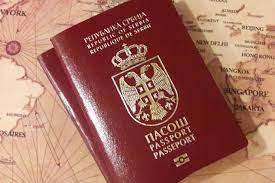Citizenship by reinstatement or descent
Citizenship by reinstatement or descent

It is possible to acquire citizenship by descent (CBD Citizenship by Descent), which is significantly cheaper compared to the classic Citizenship by Investment programs. With a second passport, you can legally reduce your taxes, diversify your privacy, open up new investment opportunities and increase your independence.
This opportunity is particularly attractive for successful entrepreneurs and investors. The only downside is that getting the second passport requires time, experience and sufficient contacts, since you have to search for information in archives.
However, we can help you with our specialized lawyers. We will give you upfront all the information you need to know about CBD and its benefits, as well as how and where to get your second passport through lineage – all at an affordable price without having to spend millions of dollars.
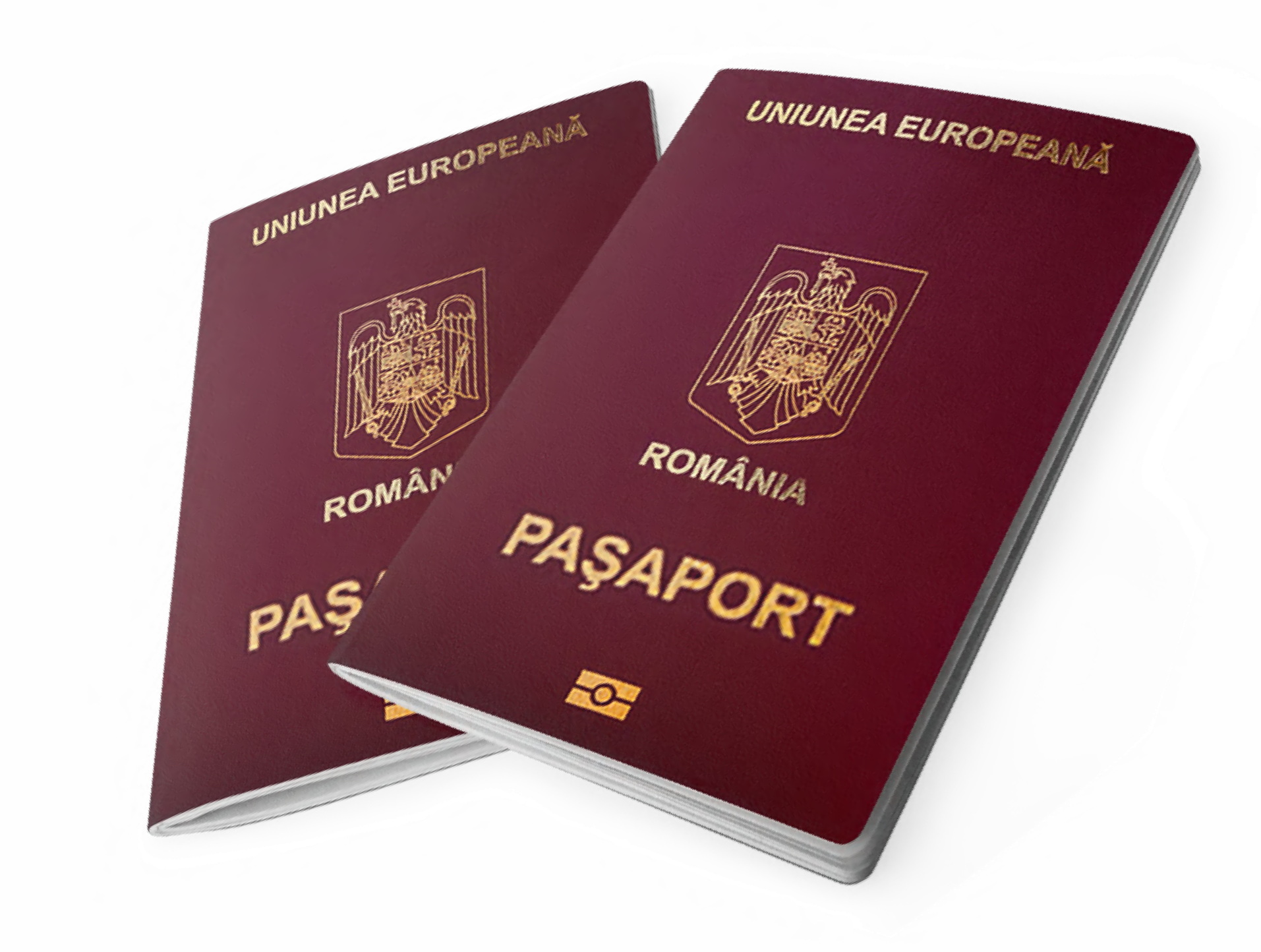
Step 1:
In order to determine your eligibility for citizenship by descent, it is important to go through the long and winding path of documentation that governments require. This means that simply using DNA kits bought online or talking to family members is not enough unless they have kept the necessary birth and marriage certificates of your ancestors.
There are certain questions that need to be answered in this step, such as how many generations to go back to apply and whether both the maternal and paternal side of the family must have been citizens. It is also important to know what kind of documents need to be provided and whether the ancestor did not renounce or lost their citizenship before they could pass it on.
To ensure that you qualify for citizenship by descent, you must be able to obtain the necessary documents. For example, if your grandmother Maria gave up her Estonian citizenship to become an American before your mother was born, you can only qualify for CBD if you can prove that she did not give up her Estonian citizenship.
Step 2:
If you’ve discovered that you’re eligible for a second citizenship because of your descent, then you’ve already cleared an important hurdle. However, if you have difficulties finding the required documents, our lawyers in the respective countries can help you with this. They have special access to the old archives and can offer you valuable support.
Next, you need to find out what documents you need to process your application. This information can usually be found on the consular website of the country offering a CBD program. However, sometimes this information is only available on an obscure government website in the local language, which may require some research. Our lawyers can also help you translate this information and make sure you have everything you need for your application.
Typically, the required documents are the following:
your birth certificate
A copy of your passport
Your ancestors’ birth certificates (which are relevant to your citizenship claim)
Related marriage, divorce, naturalization and death certificates
Each of the documents must be written in the official language of the country and have an apostille.
The preparation of your application package must be done carefully as your successful outcome depends on it.
Can’t provide the required documents? You risk delaying or prolonging your application processing. You could also expect your citizenship application to be rejected.
Step 3: WAITING FOR A DECISION
It is important to be patient and be prepared for an extended wait when applying for citizenship by descent. It can also be helpful to keep in regular contact with the embassy or consulate to follow the progress of your case and quickly provide any missing documents.
Also, you should prepare for the process by gathering all the required documents and making sure they are in good condition and legible. You should also make sure that you meet all the requirements and have not overlooked any important details as this can slow down the application process or even make it fail.
Overall, the process of applying for citizenship by descent requires patience, diligence, and perseverance, but it can be a rewarding way to acquire a second citizenship and reap the benefits that come with it.

However, there are two factors you should consider before accepting a pass:
- Of course, there are many factors that should be considered when deciding on a second citizenship, and tax advantages or disadvantages can be an important factor. It is important to weigh all the pros and cons, including tax consequences, before deciding on a second citizenship. Other factors such as travel restrictions and political stability may also play a role. It is a complex decision that should be carefully and thoroughly researched before deciding on a second citizenship.
- It is important to consider the conditions in your own country when applying for a second citizenship by descent. Some countries such as Germany, Lithuania, Norway, Poland, Estonia, the Netherlands and Denmark do not allow dual citizenship, so you would automatically lose your original citizenship if you obtained another through descent. On the other hand, there are countries like Argentina where you cannot give up your citizenship, which is also something to keep in mind.
In addition, when looking for a second citizenship, you should consider other points that are often not mentioned by traditional passport sellers. For example, you should consider how much tax you would have to pay in the country after you get citizenship and if there are any restrictions on travel. One wrong step could land you in the wrong country and tax situation and not achieve the plan B and freedom you were hoping for.
Before you make a decision, you should also be aware of the following points:
Education: Are there sufficient international schools for your children? It is important to check if the education system meets your needs and if there are good schools that offer quality education to your children.
Cost of Living: What is the cost of living in the country? Is the lifestyle you want to be expected in this country or would you have to adapt to a new kind of lifestyle?
Business Opportunities: Are there sufficient business opportunities to grow your business? It is important to check whether the country offers a favorable business environment and whether there are opportunities to achieve your business goals.
Investing Benefits: What are the benefits of investing in this country? It is important to check whether there are any incentives for investors, such as tax advantages or special investment conditions.
Health care and crime rate: How is health care in the country? What is the crime rate? It is important to check if the country offers a safe environment and has good health care.
Future prospects: does the country still have a successful future today? It is important to examine whether the country is economically stable and what long-term prospects it offers.
Pandemic restrictions: What are the restrictions in the country during a pandemic? It is important to check if the country has good crisis management and if there are any restrictions during a pandemic that could affect your plans.
It is understandable that as a freedom-loving and independent person you have certain concerns, especially in relation to other people’s experiences in a particular country. It is important to consider all relevant factors before deciding to invest or make a change of where you live.
We are able to offer you comprehensive advice, not only considering the issue of citizenship, but also other aspects such as schools, cost of living, business opportunities, investment benefits, health care, crime and future prospects.
In addition, we can also help you with other aspects of wealth protection and tax minimisation, such as choosing the right country for an ID card, opening bank accounts and structuring your assets. Our goal is to provide you with the best possible advice so that you can make informed decisions.
Where you can get Citizenship by descent?
Are you interested in additional citizenship and do you have ancestors from Hungary?
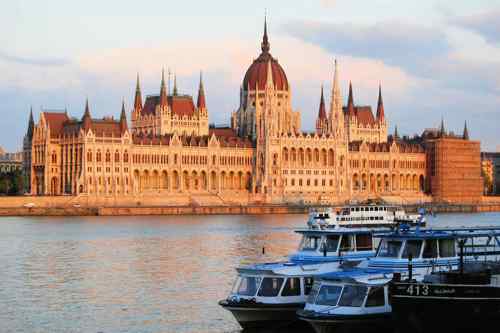
Then you may be in luck because you may be able to acquire citizenship through the Hungarian ancestry program. Unlike other European programs, there are no restrictions on how far back you need to go in your family tree to find a Hungarian ancestor. If you are able to create a paper trail from each generation to yourself, you can apply for citizenship. The advantage of the Hungarian program is that, unlike other European programs, it offers fast processing and a cheaper fee. GCI UNIT Worldwide’s professional team can help you get Hungarian citizenship quickly and easily. Also, Hungary allows dual citizenship, so you can easily add it to your existing passport portfolio.
The application process for Hungarian citizenship is not that complicated! However, you should first check whether you are actually entitled to apply. If one of your ancestors was a Hungarian citizen, you can qualify based on whether they are your parents, grandparents or great-grandparents. That’s really generous of Hungary!
It is important to make sure that your ancestor was still a Hungarian citizen at the time of your birth. Luckily, Hungary follows the “jus sanguinis” principle, which means that children of Hungarian citizens automatically become Hungarian citizens no matter where they were born.
However, there are some exceptions where Hungarian citizenship could be lost. For example, Hungarian citizens who left the country before 1929 and did not ask to keep their citizenship within 10 years lost it under the Hungarian Citizenship Act. Likewise, before October 1, 1957, women lost their Hungarian citizenship if they married a non-Hungarian citizen.
If you are confident that you can apply, there is a high probability that you can obtain a valid Hungarian passport. However, there are some subtleties that need to be considered. If you are unsure, you should contact an official body for advice.
Before submitting your application for Hungarian citizenship, you should check whether you are eligible to do so. Hungary makes it easier for its descendants to acquire citizenship, but there are certain factors that need to be considered. You can apply based on your parents, grandparents, great grandparents or even more generations who are Hungarians. However, it is important to note that there are some exceptions where Hungarians may have lost their citizenship in the past.
If you think you are eligible based on your ancestry, there are a few steps you need to take to submit your application for Hungarian citizenship. If your ancestor lost citizenship, there may be an opportunity to regain it through a declaration. However, it is important to note that there are certain criteria that must be met in order to be eligible for this simplified naturalization process.
For example, you must be able to prove that your ancestor was a Hungarian citizen or is likely to be of Hungarian origin. If you are relying on a person who was not born in present-day Hungary, you must opt for the simplified naturalization procedure. You may also be considered if your ancestors lost citizenship due to expatriation between September 15, 1947 and May 2, 1990 and had to relocate to Germany. If you have been married to a Hungarian citizen for at least ten years or have been married to a Hungarian citizen for five years and have children, you may also be considered.
In addition to these criteria, you must also prove knowledge of the Hungarian language. This will be checked by the authority receiving your application. You will be invited for a short interview in which you will have to say a few words about yourself, your family and why you want to become a Hungarian citizen. Finally, it is important that you do not have a criminal record and that no criminal proceedings are pending against you.
We hope that this information will help you with your application for Hungarian citizenship and that you meet all the requirements to successfully complete this process.
Then you need to present the following documents translated into the Hungarian language and authenticated by a consul:
- your birth certificate.
- Your parents’ marriage certificates.
- The birth certificates of the relevant parents, grandparents or great-grandparents.
- Documents evidencing name change of ancestor(s), if applicable, which is normal upon naturalization or marriage.
All other relevant official Hungarian documents, e.g. B. Old passports, civil or military records, ID cards, soldier booklets, school reports, work books, proof of address, parish/parliamentary certificates, etc.
It is important to create a paper trail documenting your connection to the land.
After you have gathered all the documents, you can apply for your Hungarian citizenship at the nearest Hungarian consulate.
However, the downside in Hungary is that they introduced citizenship-based taxation in the past!
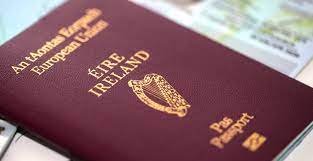
Ireland, is a wonderful country with stunning scenery, delicious cuisine and one of the lowest corporate tax rates in Europe. It also offers a bountiful opportunity to gain a second citizenship if you are fortunate enough to have Irish ancestry – be it a parent, grandparent or even a great-grandparent.
It is noteworthy that Ireland has a very open policy of granting citizenship to those with links to Ireland. In fact, there are nearly 15 million Irish passports in circulation despite the country’s population of just 4.5 million. As an Irish citizen you are also a citizen of the European Union and therefore have the freedom to live, travel and work anywhere in the EU.
Another plus is that unlike US passport holders, Irish citizens are not required to reside in Ireland. Once you have Irish citizenship, you can live and work anywhere in the world without worrying about tax issues.
The Irish passport is a highly respected passport and offers its holders visa-free travel to over 172 countries. In addition, it is also extremely low-risk.
There are a number of ways to obtain Irish citizenship, including operating a business in Ireland and living there for at least five years. But if you fall into any of the above categories, you are automatically considered an Irish citizen.
In summary, Ireland is a great place to seek second citizenship, especially if you have ties to this wonderful country.
If you fit into any of the following categories, you are automatically considered an Irish citizen:
- You were born on the island of Ireland to an Irish national.
- You were born on the island of Ireland to a non-Irish national who, at the time of your birth, met certain conditions including having been a resident of Ireland for at least 3 to 4 years 4 years.
- You were born outside Ireland to Irish nationals born in Ireland
- You were born outside Ireland to Irish nationals who were also born outside Ireland and your grandparents were Irish nationals who were born in Ireland.
- You were born outside Ireland, your parents were born outside Ireland but were on the Foreign Birth Register before you when they were born and your grandparents were born outside Ireland to your great-grandparents who were born in Ireland.
Put more simply, if each generation has Irish citizenship, it doesn’t matter that nobody has lived in Ireland since their great-grandparents.
It is also important to stress that even if your parent acquired Irish citizenship through marriage, adoption or naturalization and was an Irish citizen at the time of your birth, you may still qualify for Irish citizenship. The great thing about the system is that it doesn’t matter whether your parents were married or not, and whether or not the ancestor linking you to Ireland was alive at the time you were born.
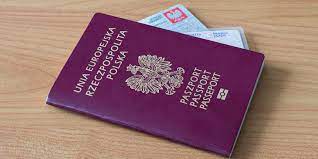
Poland: Acquiring Polish citizenship through descent can be a great way to expand your personal and financial opportunities. We recommend that you first look around your family tree before applying for a second home or purchasing a passport. It’s possibly the easiest and most affordable way to expand your options.
However, it is important to note that there are rules that must be followed. For example, after Poland declared independence in 1918, your Polish ancestors must have left the country to be eligible for citizenship. If your ancestors were born before 1899, they are not qualified to assist you under the 1920 Polish citizenship laws.
Therefore, to be eligible for citizenship, you must have ancestors who were born in the 20th century. If your family members were under the age of 21 at the time the 1920 laws were ratified, they could potentially qualify for Polish citizenship even if they were born and held citizenship in another country such as the United States.
There are some conditions that must be observed in order to acquire Polish citizenship by descent. If an ancestor in the bloodline has lost Polish citizenship, you cannot obtain citizenship. It is also important to note that ethnic Polish ancestry is not automatically eligible for citizenship.
Unlike some other citizenship programs, which state that anyone with ancestry from a certain area can become a citizen, Polish citizenship requires ancestry to have been Polish.
So, Poland has slightly stricter requirements than some other countries. However, it is still possible that other family members may qualify for Lithuanian citizenship.
While the requirements may be demanding, being eligible to acquire Polish citizenship through descent is still a great way to broaden your options.
The process of applying for Polish citizenship by descent can be a bit complex, but we are here to help you every step of the way.
First, you must prove your eligibility by submitting a biography and forms in Polish to your local Polish embassy. You must also collect information about your Polish ancestors and their vital records, including military service and any other citizenships they held.
We understand that the process can take time and patience, and can even lead to frustration at times, but we are here to support you and make sure everything goes smoothly.
For those who prefer a more relaxed approach, we also offer our premium service to help you apply for citizenship by descent. We have assisted many people with Polish roots and successfully applied for a second passport, which is not only European but also one of the most powerful travel documents in the world.
Feel free to contact us to learn more about our services and how we can help you apply for Polish citizenship by descent.
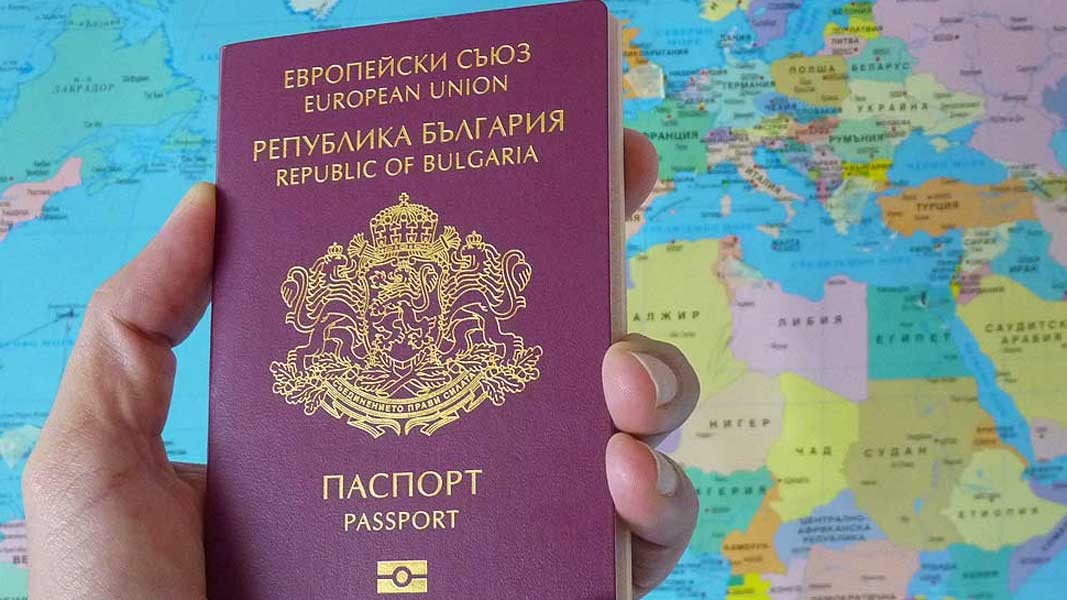
Bulgaria:
One way to obtain Bulgarian citizenship quickly and transparently is currently to regain citizenship through descent back to the third generation. This possibility is based on the elements of Bulgarian citizenship law, which were amended in 2021.
According to Law No. 21/1991 and Articles 10 and 11, if a relative in your family was a Bulgarian citizen at any point in his or her life, you can apply for Bulgarian citizenship through descent back to the third generation. This can be a parent, grandparent or great-grandparent.
All you have to do is prove that you are either descended from a direct relative who was a Bulgarian citizen or that you were adopted by a Bulgarian citizen. There are no language requirements or obligation to give up your current nationality. We are at your disposal to guide you through the process of regaining Bulgarian citizenship.

Italien: The Italian descent citizenship program is well known and comparatively liberal. Unlike other countries that limit the number of generations you can trace back to obtain your Italian citizenship, in Italy you can go back up to three or more generations if you have a paper trail linking you to those ancestors.
The process of obtaining a second passport, for economic or other reasons, can be either as simple as filling out a few forms or an arduous, drawn-out battle with bureaucracy. Unlike acquiring a passport through residence or through an economic citizenship program, qualifying for citizenship through descent requires a very different approach.
Basically, you can become a citizen if you can prove that you have ancestors from that country. How far back you can go – whether grandparents, great-grandparents or even further – depends on the country.
There are several countries, particularly in Europe, that offer citizenship by descent programs, which are a great way to get a European passport.
However, the risk of following this process is that it can be difficult to determine whether or not one actually qualifies, as laws and exemptions vary from country to country.
Luckily, there are experts to work with to meet the selection criteria. For example, when it comes to Italian citizenship by descent, parents, grandparents and great-grandparents can qualify the applicant, but also additional ancestors if one has the necessary documentation.
To qualify, the eldest Italian ancestor from whom Italian citizenship descends must have been alive on March 17, 1861 and had been an Italian citizen at the time of the applicant’s birth.
There are also certain requirements when applying through a parent and the applicant’s date of birth is a factor.
To ensure one qualifies for citizenship, it is important to know which ancestors were Italian.
However, there have been some exceptions in Italian history that must be considered, such as the fact that persons naturalized before June 14, 1912 could not transfer their citizenship to their children born before their naturalization.
For persons born before January 1, 1948, the mother’s transfer of citizenship was not automatic.
Finally, persons born between April 27, 1965 and May 17, 1967 had the opportunity to acquire Italian citizenship by descent, but only if they applied for it within a year of their 18th birthday.
The following documents must be presented to the Italian government, all apostilled and of course translated into Italian:
- A copy of your passport and ID card/driving license
- Proof of residence
- An application form
- Birth certificate of Italian born Italian Ascendant (issued by the municipality in Italy)
- Birth certificates of the applicant and all relevant ancestors
- marriage certificates
- death certificates
- divorce decree, if applicable
- Copy of letter of intent/application for naturalization issued by the National Archives
- Certificate of Naturalization if your ancestor was naturalized in the United States.
However, you should keep in mind that living in Italy can be difficult, especially if you don’t speak the language and don’t have a job.
It is important to understand all aspects of the process and to carefully consider whether living in Italy or waiting for your application for citizenship by descent abroad to be processed is the best option for you.
It may also be wise to hire a lawyer or expert to guide you through the process and help you through every step.
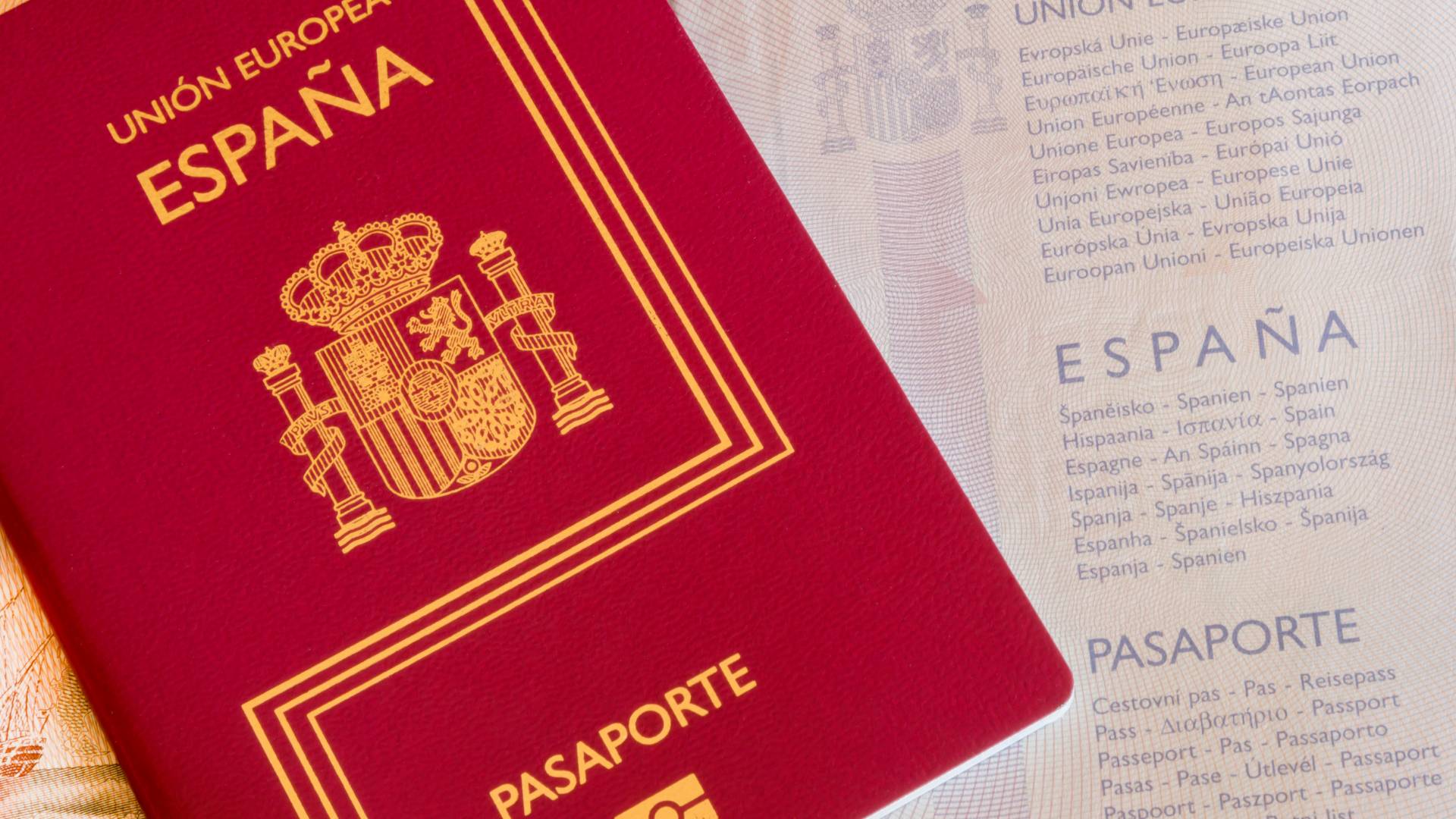
Spanien: Spain has recently expanded its rules on citizenship by descent, allowing people who were previously unable to obtain Spanish citizenship due to so-called “historical memory” to apply for it.
Under certain conditions, grandchildren and great-grandchildren can now also obtain Spanish citizenship. However, not all descendants are eligible as the new Ordinance (Boletín Oficina del Estado) only grants citizenship under three different situations.
For example, grandchildren of Spaniards who were born in Spain and who were married to non-Spaniards before the 1978 Constitution came into force and who have lost their Spanish citizenship as a result can apply for citizenship.
In order to obtain Spanish citizenship by descent, you must first prepare all the documents proving your kinship to the ex-Spanish citizen (this refers to your birth certificate and those of your ancestors), as well as all the evidence proving the exile, the persecution and the relate to renunciation of citizenship.
Once you have prepared all the required documents, you can submit your application to either the Spanish Consulate in your country of origin or the Central Registry Office in Spain.
While the exact details of the application process are not fully known at this time, we will keep you informed and will share any new information with you as soon as it becomes available.
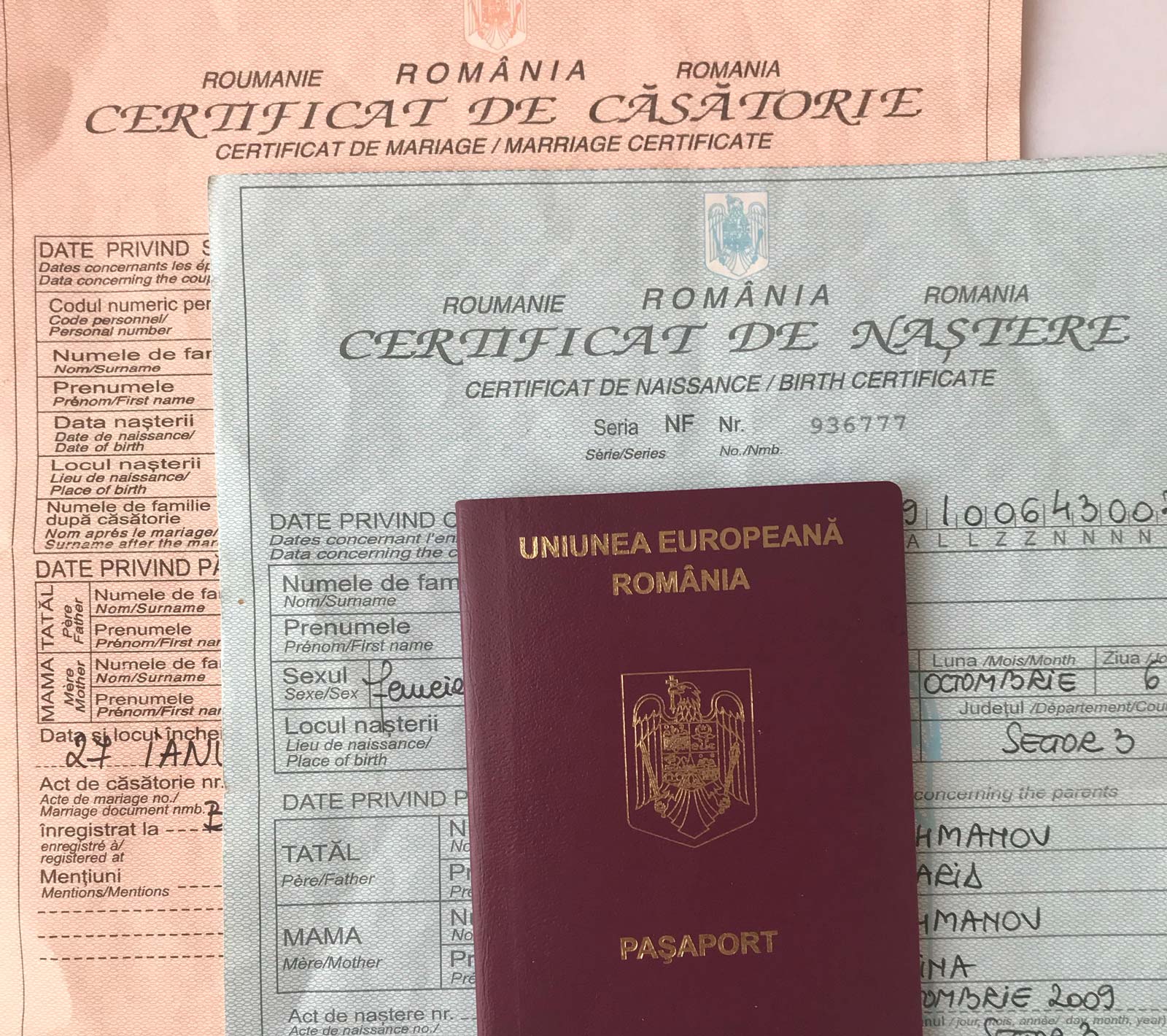
Rumänien,
In Romania, there is an opportunity to acquire Romanian citizenship, which is especially important for descendants of citizens who lived in the former Kingdom of Romania between 1918 and 1940. The simplified procedure is described in Law No. 21 “On Citizenship” since 1991 with amendments, Article 11 of the Citizenship Law and Article 7 of the Constitution of Romania.
The verification and digitization of the required documents usually only takes about 2-3 months and results in the issuance of the Romanian passport. If the requirements are met, it is relatively quick and easy to acquire Romanian citizenship.
If you’re thinking about leaving the country but don’t know where to start, our GCI UNT Worldwide team is here to help.
We’ve helped hundreds of people move their businesses overseas, legally reduce their taxes, and become dual citizens. We are focused on high-net-worth individuals and their families as well as corporations wishing to invest their offshore companies or even secure their wealth in offshore financial centers around the world. We will help you to find the best solution for setting up an offshore or onshore company. Another special area of our full-service consulting is the investment opportunity and solution in Europe, especially in the Balkans, Africa, Asia, UAE, the Caribbean and the Pacific.
If you are looking for it, please feel free to contact us. We create a holistic plan that serves your purpose.
(GCI UNIT Worldwide) The Global Citizenship Investment Worldwide Group is a leading professional International Business Investment and Advisory Firm for Foreign Economic Relations, with 17th. departments in different Countries and the Headquarter in Malaysia.
GCI UNIT Worldwide, designs and implements customized, holistic strategies for successful investors and entrepreneurs to legally reduce their tax bills, diversify and protect their wealth, invest abroad, gain a second citizenship and live a freer life worldwide to lead.
YOUR CHANCE FOR A BETTER LIVE
GCI firm is a professional International Business Investment and Advisory Firm for Foreign Economic Relations. Our range of services includes:
• Offshore and Onshore Company Formation,
• international Business & Management
• Citizenship & Residency
Advice on residency and citizenship by investment programs, VIP citizenship programs in cooperation
with more than 70 countries
• Investments & Corporate Financing
• Advisory for Foreign Economic Relationship
• Diplomatic Consultancy & Public Affairs
If you would like to discuss your internationalization and diversification plans, book a consulting session* or email us under: [email protected]
*A counseling session is a conversation about your portfolio and goals. It does not constitute legal, financial, tax or investment advice.
Department GCI – Unit Global Citizenship Investment (GCI worldwide)
by TCME Worldwide Group – Global Investments –
Level 33, Ilham Tower, 8 Jalan Binjai,
Kuala Lumpur 50450, Malaysia
www.tcme.company
www.citizenship-news.com
Phone: +66 99091 8357 also for WhatsApp
Email: [email protected]


